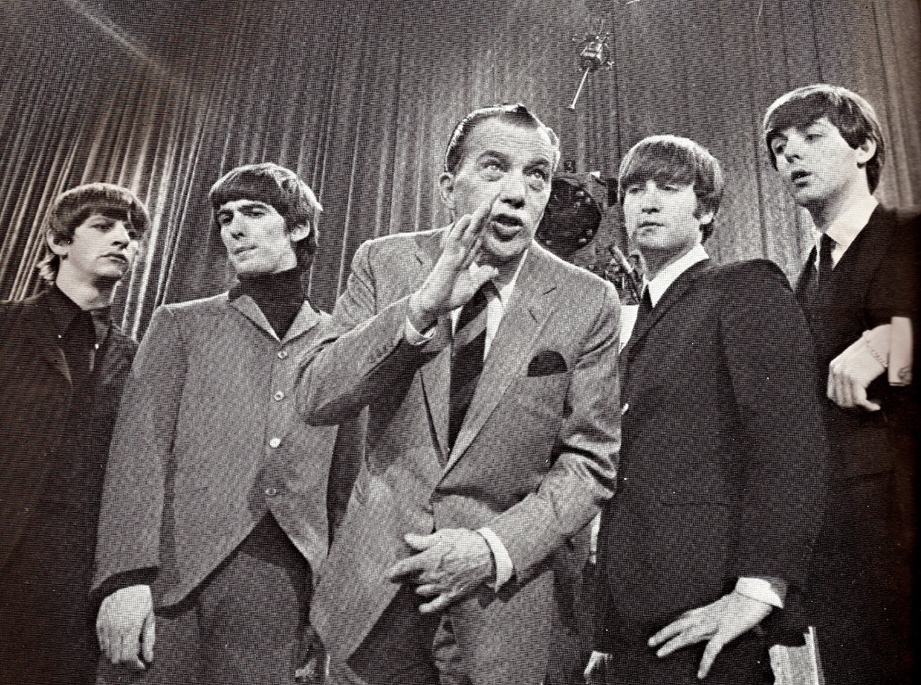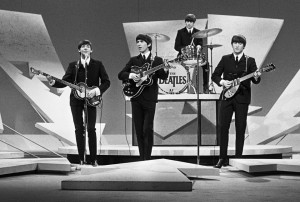Steve Beauchampé on the enduring legacy of the Fab Four.
In the history of popular music there is the Beatles, and then there is everyone else. 44 years since they last recorded together, and 48 years since they last toured, the group are still by far and way the most revered, most influential and most celebrated act in the world. Their story it seems, every last detail of it, can never be told too often or analysed too much.
Every year new books, videos, TV and radio features and documentaries are lapped up by a public eager to discover more, or further enjoy what they know already. Add in computer games, clothing and other merchandise, digital jukebox deals and Love, Cirque du Soleil’s Las Vegas show based on the Beatles music which has grossed over $800m since launching in 2006, and the Beatles truly are the gift that keeps on giving.
Then there are the recordings. Following the Beatles launch on iTunes in November 2010, the group’s entire catalogue is now available almost everywhere on the planet (China, Pakistan and a few other countries excepted). In 2013 they were the 12th best selling act on iTunes and although data is sketchy, in the last four months alone are believed to have sold over 1 million albums (physical and digital) and probably an even greater number of track downloads. Not just to their traditional fan bases in western Europe, North America, Japan and Australasia, but worldwide, from the potentially large markets of Russia and India to arguably more obscure places such as El Salvador, Vietnam, Mongolia and Cape Verde. For many territories, the iTunes deal may represent the first occasion that the group’s music has been legally available in decades, if at all.
Figures published this month by Fox News claim that since the start of their exclusive iTunes deal the Beatles have sold 14.6m digital tracks in the USA alone, including 2.7m last year (worldwide totals are probably between 20m-25m). Global digital album sales were not given, but 450,000 were sold in the first two months of the iTunes deal and the figure will by now be in the millions.
Meanwhile, since 2009 Apple Records, the label established by the group in 1968 and today owned by Paul, Ringo and the estates of John and George, have re-mastered the band’s catalogue, vastly improved the quality and authenticity of the packaging and even released a small amount of previously unavailable material. The re-issue process is ongoing with certain items such as the Let It Be film, the band’s Christmas fan club recordings and the long deleted Live at the Hollywood Bowl album presumably somewhere in the queue. Next up is likely to be the re-release of the A Hard Day’s Night film to coincide with its 50th anniversary this July, whilst Universal (who now issue the Beatles music, following their acquisition of EMI) recently stated that they had ongoing plans for Beatles product and marketing several years ahead.
Currently though, the focus is on the United States, as the 50th anniversary of the group’s breakthrough, via the single I Want To Hold Your Hand, and their appearances on the Ed Sullivan Show, is commemorated. Stateside, there’s blanket media coverage, with Paul and Ringo’s appearance at the recent Grammy Awards ceremony and the David Letterman Show and The Night That Changed America, a two-hour TV special tribute to be broadcast on Sunday (50 years ago to the minute after their Ed Sullivan Show debut), with musical stars from the past half-century only too happy to express their love of the group and its legacy.
An accompanying spike in record sales is assured across both physical and digital formats (it’s already been evident for several weeks as the anniversary approached) and the Beatles US albums (which until 1967 varied in title, packaging and track listing from their British counterparts) have been made available on CD, some for the first time.
Like no other recording artists, the Beatles have become hard wired into the DNA of contemporary western culture and their impact seems unlikely to diminish any time soon. Unlike Elvis, the Beatles were always cool, split up before they had overstayed their welcome and were prevented by events from sullying their reputation with an ill-judged come back. Whilst major catalogue artists such as Bob Dylan, the Rolling Stones, Led Zeppelin, Queen and Abba are remembered mostly for their ‘hits’ (however unfair that might be), the average music fan probably recognises at least half of the Beatles album tracks and all of their singles.
This weekend, as those Americans old enough to remember how the Beatles changed their world enjoy the nostalgia, and those too young to have been around in 1964 look on a little enviously, it seems hard to envisage a time when the Beatles won’t matter.
See also https://thebirminghampress.com/2014/01/beatles-fans-to-come-together-in-kings-heath/

